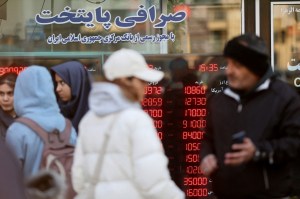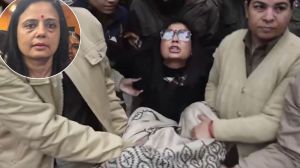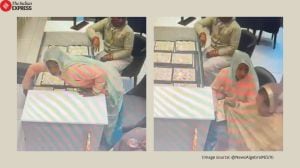TN bishops resist Jaya largesse
After successfully launching the Annadhaan scheme in 180 temples and 12 dargahs, Tamil Nadu Chief Minister J Jayalalithaa is facing stiff re...

After successfully launching the Annadhaan scheme in 180 temples and 12 dargahs, Tamil Nadu Chief Minister J Jayalalithaa is facing stiff resistance from the Catholic Church in the state following her attempt to introduce the free noon meal programme in churches as well.
The Tamil Nadu Bishops8217; Council has appealed to the chief minister not to extend the scheme to Catholic churches in the state. Dr Peter Fernando, president of the Bishops8217; Council and Archbishop of Madurai, and Dr Chinappa, Archbishop of Chennai-Mylapore Diocese, in a joint statement last night, said there were practical difficulties in selecting churches and beneficiaries to implement the scheme.
Selecting a few beneficiaries would create 8216;8216;unnecessary mental agony8217;8217; to those left out, particularly in the rural areas. Morever, the selection of a few churches might lead to 8216;8216;unnecessary split8217;8217; among the Catholic churches in the state, the council said.
The Bishops8217; Council also said that providing free noon meal in churches on a regular basis, that too at government expense, was not the custom of Christianity and might hinder the sanctity, cleanliness and peace at places of worship. Chances of prayers becoming 8216;8216;meaningless8217;8217; were high as it would not be possible to differentiate between 8216;8216;true devotees and those who visited the churches only to take food8217;8217;. It might also lead to governmental interference in the affairs of churches later, the bishops said.
In what was seen as a pro-Hindu gesture, Jayalalithaa introduced the Annadhaan scheme in temples in March 2002, a year after her victory in the assembly elections in alliance with the Congress. She even began donating her monthly salary to a select temple every month. The move was seen as an attempt by Jayalalithaa to appease the Sangh Parivar in the run-up to the 2004 Lok Sabha election, for which she eventually aligned with the BJP. The scheme was later introduced in 12 dargahs as well, with poor Muslim devotees being fed once a day.
On December 25, Jayalalithaa formally launched the scheme at a city church, promising to extend it gradually to 100 churches in the state.
The Tamil Nadu bishops said that instead of extending the scheme to Catholic churches, it would be better if the government provided rice and other essential commodities at subsidised rates to the orphanages, homes for the aged and disabled and students hostels run by the Church.
- 01
- 02
- 03
- 04
- 05































